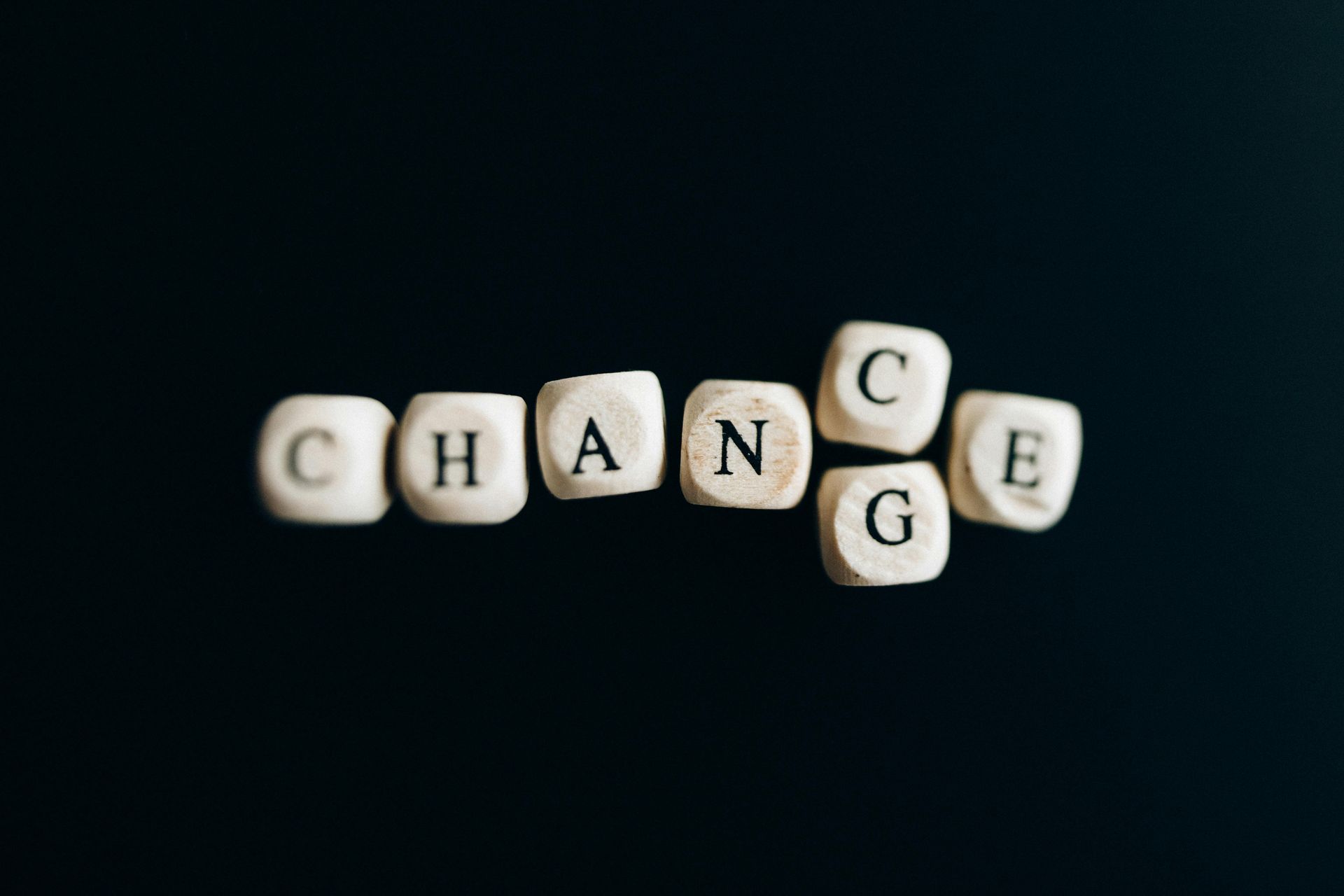The People Who See You: Building Community Beyond the Corporate Circle
Whilst I was drafting this month’s blog post, I came across an article about Victoria Beckham and something called the "liking gap" - the disparity between how much we think others like us versus how much they actually do. Whilst it uses the legendary VB as an illustrative example, it highlights the reality that most of us (especially women) drastically underestimate how much others enjoy our company, spending mental energy on worries that exist primarily in our heads.
Victoria Beckham, who now has her own documentary coming out on Netflix next month, is someone who spent years consumed with what the world thought of her, with the article describing her as suffering from "excruciating self-obsession fuelled by insecurity." And honestly, I saw a bit of myself in that description because I've been there too. We probably all have.
But this is the thing isn’t it? We are conditioned to seek external validation and approval from others, it’s going to happen when you work in organisations that give us common values and behavioural standards, and define the cultures we exist in day to day. Couple that with the constant presence of social media, news, TV and Film, and it’s no surprise that we might be left feeling overwhelmed, undervalued and simply not good enough. Because we are being told that, directly or indirectly, day in and day out, from all angles.
So again, the question for me is, how many of us spend years looking to the wrong people for validation?
When Your Network Isn't Your Community
Remember that moment I wrote about in my past blogs - sitting in my home office in Bangalore in 2020, needing to talk to someone but not knowing who to call? Despite having great relationships with colleagues worldwide, what I was feeling seemed too personal, too frightening, even shameful, to share with my professional network.
It took me some time and some courage to realise something fundamental: there's a difference between having people who know your achievements and having people who actually see you.
Your colleagues might celebrate your promotion, but will they support you when you admit you're questioning everything? Your industry contacts might endorse your skills on LinkedIn, but will they listen when you say you're exhausted despite looking successful on paper?
I learned this the hard way in the years that followed leaving HSBC. After taking some much-needed time off, I took on a consulting role at a US investment bank, establishing a brand new function and building a team. And while I enjoyed parts of it and the money was excellent, it crystallised something important: I realised I didn't want my future or job security to be reliant on a large organization or, frankly, middle-aged white men making decisions about my career. I didn’t want to spend all of my time working in organisations that leave people feeling exhausted and fearful, pretending to be different versions of themselves to be “approved” of by the organisation and it’s performance management standards.
I wanted a different kind of security - one built on my own skills, relationships and choices. And one that actually had a positive purpose to it, helping people rather than making them feel not good enough.
Trying to make change requires you to do things differently. It means starting to surround yourself with different people and connections that are part of the world or space you want to be in. Who have done it before you or are working alongside you. And as I started to make changes, my network understandably started to evolve. The people I'd spent years building "strategic relationships" with gradually faded away (and vice versa). But other relationships – some of which were more than 10 years old - stepped forward in ways that surprised me.
The Real Gap
Here's what I think the real gap is: not just the space between how much people like us versus how much we think they do, but the chasm between seeking approval from everyone and finding genuine support from the right people.
The Victoria Beckham article's example resonated because it highlighted how someone can build something successful - in this case, a business now worth millions - not by winning over the critics, but by trusting their own vision and surrounding themselves with people who believed in it too.
The gradual move from needing everyone's approval to focusing on the opinions that actually matter - that's where the magic happens.
Finding Your People in the Messy Middle
When I made that decision on December 10th, 2020 - sitting jet-lagged in temporary accommodation, realising mid-interview that my heart wasn't in pursuing another corporate role - I thought I had it figured out. But it took another stint in corporate consulting to truly understand what I was moving toward, not just what I was moving away from.
Those two years at a US investment bank taught me as much about myself as the previous decade had. Yes, I could still perform at a high level. Yes, I could build teams and establish new functions. But I also learned I craved autonomy, choice, and freedom in ways that no corporate structure - however well-paid - could satisfy.
When that contract ended, it felt very similar to leaving HSBC and I was reminded of why I’d chosen to leave the first time around. As I thought about it during the cold, dark January of 2024, the way forward became clear: I wanted to retrain as a coach and try something completely different. Scary? Absolutely, but you know that saying “if it scares and excites you at the same time, it’s probably the right thing to do”?
What I couldn't have anticipated was how right it would feel. As I immersed myself in coach training and that world, something magical happened. I found myself surrounded by people who both understood me and were like-minded, but who also challenged me - in the right way. Not the aggressive, ego-driven challenge of difficult boardrooms, but the kind that comes from genuine curiosity and care for growth.
For the first time in years, I felt like I was in exactly the right place.
The coaching world introduced me to a different kind of community entirely. These weren't people impressed by job titles or salary figures. They were drawn to depth, to authentic connection, to helping each other become who they were meant to be. The conversations were different. The support was different. The whole energy was different.
As I started being honest about what I actually wanted - more autonomy, more choice, work that felt personally meaningful - these were the people who showed up. Some were fellow coaches-in-training, others were established practitioners who took me under their wing. All of them were interested in the real me and who I was becoming (cheesy, I know, but it’s true!).
The people who matter aren't necessarily the ones with impressive credentials. They're the ones who see your potential even when you can't see it yourself.
What Inner Authority Actually Requires
Building genuine inner authority - the kind that lets you walk away from well-paid consulting contracts to retrain in something completely different - isn't a solo journey. It requires community, but the right kind of community.
Over these past four years of coaching training and practice, I've learned that inner authority flourishes when you're surrounded by people who see your potential even when you can't see it yourself. People who will celebrate your courage to change direction, not just your ability to climb the ladder. People who understand that the most important growth often happens outside your comfort zone, but who'll support you through the discomfort.
The coaching community taught me what it felt like to be truly seen and supported. Not for what I could produce or deliver, but for who I was becoming. These were relationships built on curiosity rather than competition, on depth rather than networking strategy.
Ask yourself:
Who in your life would you call if you woke up tomorrow and said, "I think I need to change everything"?
Who would listen without immediately trying to talk you out of it or remind you of all the "practical" reasons to stay put?
These are your people. This is your community. And their voices are the ones that should carry weight when you're making decisions about your life.
The Community That Holds Your Whole Self
Since choosing this path, I've discovered something beautiful: when you stop trying to be palatable to everyone, you become magnetic to the right people. The coaching practice I'm building, the relationships with clients who trust me with their own transitions, the community of practitioners who've become genuine friends - it's taken time, but I'm getting there. And I love what I do.
None of this would have been possible if I'd stayed in roles that looked impressive but felt hollow. The magic happened when I finally found my people - not just colleagues, but a community that understood both where I'd been and where I was trying to go.
This doesn't mean becoming indifferent to others or abandoning empathy. It means developing such clarity on your values and vision that external opinions inform but don't control your decisions. It means surrounding yourself with people who've earned the right to influence your thinking because they genuinely care about your wellbeing, not just your productivity.
That's what inner authority supported by genuine community looks like: the confidence to own your narrative, even the parts others might find questionable.
Building Your Real Network
So how do you build this kind of community? It starts with radical honesty about who you are when you're not performing a role.
Practice vulnerable sharing. The people who can hold space for your uncertainty, your fears, your dreams that don't make sense on paper - these are your people. But they can only show up for you if you let them see the real you.
Trust your instincts about relationships. That gut feeling about who feels safe, who energises you, who you can be completely yourself around - pay attention to it. Your real community won't drain you, they'll refuel you.
Look beyond your industry. Some of my most valuable relationships now exist completely outside my former professional sphere. The parent at school drop-off who asks how you're really doing. The friend who's known you since before you had a LinkedIn profile. The local and fellow business owners who have so much empathy and support to offer.
Embrace what others might see as your "edges." There's power in owning what others might judge - when you stop trying to be professionally palatable to everyone, you become authentically attractive to the right people.
What I Know Now
If you're reading this and something resonates, please know: there’s nothing wrong with you if you're successful on paper but feel disconnected. You're not ungrateful if you want something different. You're not a failure if you're tired of optimising for other people's definitions of success.
You're someone who's ready to remember that your inner voice - the one that knows when you need rest, when something doesn't feel right, when it's time for change - deserves as much respect as any external metric.
And when you have the right community - people who see you, not just your achievements - they'll remind you of this truth when you forget it. They'll support you in listening to that voice, even when it's asking for something that doesn't make sense to anyone else.
The question isn't whether you can trust yourself. You proved that the moment you started questioning whether there might be something better waiting.
The question is: who do you want beside you as you figure out what comes next?
Who in your life sees the real you – not just the version that looks good on paper? And what would become possible if you stopped seeking approval from everyone and started building genuine support from the right people? These are the questions worth sitting with as we head into the final quarter of the year.
👉 If you’re craving that kind of community, that’s exactly what we’re creating inside The Inner Authority Club – a space to explore these questions together, build confidence in your own voice and surround yourself with people who really see you.




